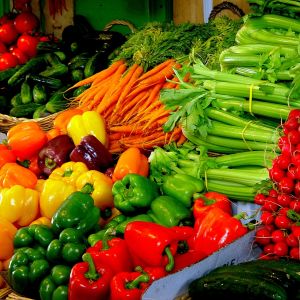Does shopping at upscale grocery stores make you a better consumer? Hardly. In fact, contrary to what you may already believe, organic food is not less efficient and thus more expensive. It is also worse for the environment.
A study by the University of Melbourne in Australia shows that organic farming yields 43 percent to 72 percent less than conventional methods — and that achieving the same output requires 130 percent more farmland. For those skeptical about the results of just one study, you can find more of them here, here, here or here. The last-mentioned study underlines the point that “if all U.S. wheat production were grown organically, an additional (30.6 million acres) would be needed to match 2014 production levels.”
Organic food needs more resources than conventional farming. The effects on biodiversity are severe: insects and pollinators can access fewer natural reserves with organic agriculture. On top of that, under a 100 percent adoption scenario of organic farming, carbon-dioxide emissions would increase by up to a whopping 70 percent, as researchers in the United Kingdom have shown.
So why do some people in the United States continue to buy organic food at sometimes double the price of conventional food? One on hand, it’s performative. Shopping at sizeable organic food shops is popular and presumably the sort of thing you’re supposed to do once you have a comfortable salary in a large city. On the other hand, some consumers are misled about the alleged benefits of organic farming. Organic food is thought to be healthier (it isn’t) and to not use pesticides (it does).
Organic farming has become a talking point, more than just a beneficial placebo effect for upper-class city-dwellers. It is also political. “Democrats will invest in research and development to support climate-resilient, sustainable, low-carbon and organic agricultural methods,” the 2020 Democratic Party platform says. Yet the Democrats are doing more than just subsidization — environmentalists are undermining the catalog of pesticides available to farmers by arguing that they are dangerous. In fact, painting pesticides that have been safely used in American agriculture since the 1960s as “bee-killing” or “toxic” has been a frequent trope of activists who bemoan everything from “factory farming” to the availability of meat.
Sen. Cory Booker is happy to play a part in a New York Times opinion video in which he says “we are past the national emergency,” tying climate change with the American food system. Booker, whose home state of New Jersey produces a whopping … 0.35 percent of all the food in the United States, probably misrepresents the reality of American farming. In fact, agricultural intensification has led to peak agricultural land being reached, meaning that we make more food with less land overall, which allows our ecosystem to regrow over time. That means more forests and flowers for the aerial shots of political campaign videos.
The representation of the American food system as toxic and evil can only go so far before it becomes either comical or sad. Neither of them is a good look.

